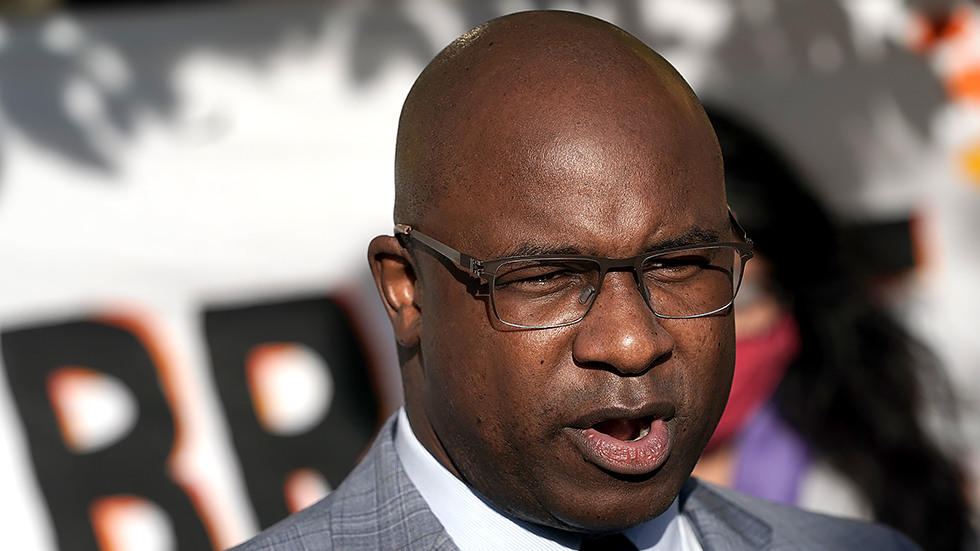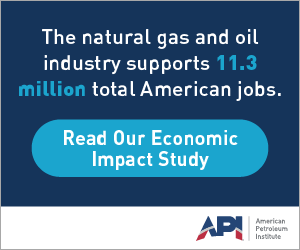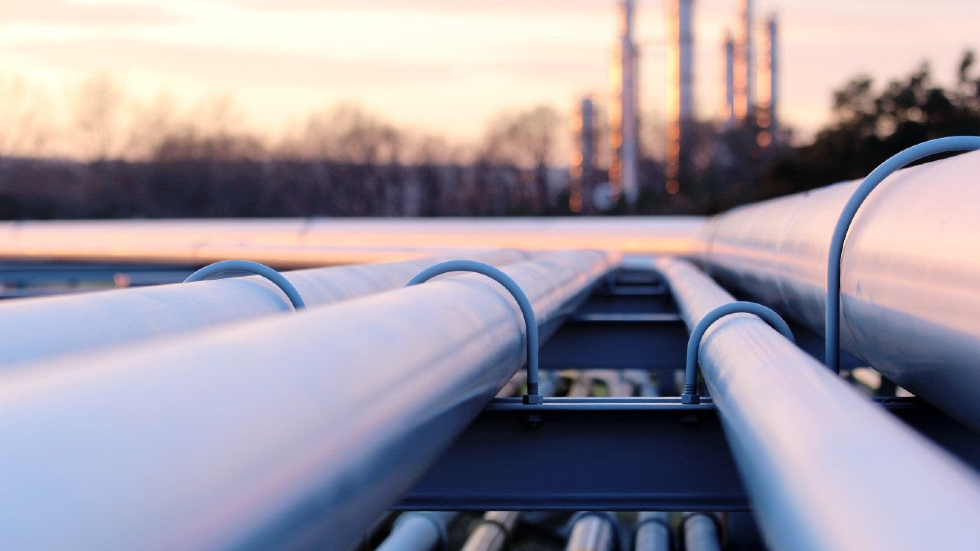Overnight Energy & Environment — Presented by the American Petroleum Institute — Progressives wage ‘no gas’ campaign

Welcome to Wednesday’s Overnight Energy & Environment, your source for the latest news focused on energy, the environment and beyond. Subscribe here: digital-stage.thehill.com/newsletter-signup.
Today we’re looking at progressive advocates pushing to keep the gas industry out of a federal clean electricity program, OPEC’s response to U.S. calls for more production and a United Nations report on the future of the climate.
For The Hill, we’re Rachel Frazin and Zack Budryk. Write to us with tips: rfrazin@digital-stage.thehill.com and zbudryk@digital-stage.thehill.com. Follow us on Twitter: @RachelFrazin and @BudrykZack.
Let’s jump in.
Dems face pressure over clean power program

Progressives are pushing to try to keep natural gas out of a Democratic proposal aimed at reducing greenhouse gas emissions from the electric sector.
A number of progressive and environmental groups on Wednesday launched what they called a “no gas” campaign to pressure Democrats not to include fossil fuel in their clean electricity payment program — in which power providers would be incentivized to switch to clean sources.
The 15 organizations also got support from Rep. Jamaal Bowman (D-N.Y.) in their push.
“This is our moment to turbocharge the transition to a green, just economy, and the Clean Energy Standard can play a key role — but it needs to be as ambitious as possible on renewables, and it needs to exclude gas,” Bowman said in a statement.
The background: Natural gas is less carbon-intensive when burned than other fossil fuels like oil and coal, but it still contributes climate-warming emissions to the atmosphere.
The details behind the clean electricity payment program haven’t been revealed yet. The program is modeled after a similar idea called a clean electricity standard that would have required a certain percentage of power to come from clean sources.
Democrats are banking on the program for a significant percentage of the emissions cuts from their infrastructure bills, saying that the policy and clean energy tax credits are together responsible for more than 40 percent of the emissions cuts they hope to achieve overall.
The package will have to be negotiated with both the left and right wings of the party, which hold razor-thin majorities in Congress, so it’s not clear how the debate will unfold.
Read more about the push here.
A MESSAGE FROM API

The American Petroleum Institute released a new analysis of the natural gas and oil industry’s impact on the U.S. economy. Learn how the industry is powering each state’s economy here.
OPEC defies White House on oil output

A group of oil-producing countries known collectively as OPEC+ on Wednesday said it would move ahead with a previously planned increase in its output despite a call from the Biden administration to increase it even more.
In a statement, the coalition said it would “reconfirm” a plan approved in July to add 400,000 barrels per day to its monthly overall production until pandemic-related cuts are phased out.
The move comes in defiance of the U.S. — which is not a party to the group — as the Biden administration asked the group last month to add more oil to the market to temper prices.
The administration’s request: “While OPEC+ recently agreed to production increases, these increases will not fully offset previous production cuts that OPEC+ imposed during the pandemic until well into 2022,” national security adviser Jake Sullivan said in a statement at the time. “At a critical moment in the global recovery, this is simply not enough.”
The Biden administration’s call drew criticism from conservatives and progressives alike, with the former decrying the need to depend on foreign oil and the latter arguing that the country shouldn’t encourage more fossil fuel production of any kind.
Read more about the announcement here.
DISASTERS UP, BUT GLOBAL DEATHS DOWN
Climate change is leading to more weather-related disasters but is resulting in fewer deaths, according to a report released by the World Meteorological Organization (WMO) on Tuesday.
According to the WMO’s report, a weather-related disaster occurred every day on average between 1970 and 2019, killing 2 million people and costing $3.64 trillion in losses.
“The number of disasters has increased by a factor of five over the 50-year period, driven by climate change, more extreme weather and improved reporting. But, thanks to improved early warnings and disaster management, the number of deaths decreased almost three-fold,” the WMO said in a press release.
In the 50 years that the WMO observed, the hazards that resulted in the most human loss were droughts, storms, floods and extreme temperatures.
Storms and floods were responsible for the most economic loss. Three of the top 10 costliest storms — hurricanes Harvey, Maria and Irma — occurred in 2017. These three storms accounted for 35 percent of the total economic loss caused by the top 10 disasters observed from 1970 to 2019.
More than 91 percent of reported deaths occurred in developing countries.
“The number of weather, climate and water extremes are increasing and will become more frequent and severe in many parts of the world as a result of climate change,” WMO Secretary-General Petteri Taalas said.
Read more about the report here.
PRESIDENTIAL SURVEY
President Biden plans to travel to Louisiana on Friday to meet with state and local officials and view the destruction caused by Hurricane Ida.
The White House said in a statement that Biden will travel to New Orleans “to survey storm damage from Hurricane Ida and meet with State and local leaders from impacted communities.”
Plans for the visit were first reported by The Advocate on Wednesday.
Up until now: Biden has received regular briefings on the storm. He met virtually with Louisiana Gov. John Bel Edwards (D) and other state and local officials Monday and led a call with energy sector leaders about restoring power following the storm Tuesday.
Timing the visit: White House press secretary Jen Psaki told reporters Tuesday that Biden was open to traveling to the region to survey the damage of the hurricane, but added that he was mindful of not taking up resources on the ground.
Psaki added during a briefing Wednesday that Biden would not be making the trip if it would take away from relief efforts.
“This is a trip that is being planned in close coordination with leaders on the ground to ensure it’s the right time together,” Psaki said. “We are not going to go to any part of the state or visit any community where we would take away from relief and restoration efforts.”
POWERLESS
A Louisiana energy company said this week that restoring power to the thousands of households that have lost electricity due to Hurricane Ida could be a “weeks long process.”
“Though we would love nothing more than to restore power to all members at this time, without repairs to transmission and transformer poles, that isn’t possible. Also until damaged infrastructure is repaired, we cannot begin to replace distribution poles and lines and estimated times of restoration are not possible,” the DEMCO energy company wrote on its Facebook page.
“Our message is that this will be a weeks long process and members should make plans now for their health, safety and comfort,” the company said.
House panel to mark up reconciliation proposal

The House Natural Resources Committee, chaired by Rep. Raúl Grijalva (D-Ariz.), will mark up its proposal for reconciliation spending on Thursday.
The bill, which comes from a $25.6 billion allocation, also contains revenue raisers, so its total spending is expected to be around $31 billion.
Key provisions include:
- Repealing the Arctic National Wildlife Refuge Drilling Program established in a 2017 bill, including by canceling the leases issued there and refunding lessees
- Banning offshore drilling in the Atlantic and Pacific oceans, as well as the Eastern Gulf of Mexico
- Hiking royalty rates for onshore and offshore drilling
- Creating royalty payments for hardrock mining
- Providing funds for a Civilian Climate Corps — a jobs program similar to a New Deal-era conservation program
GOP response: As expected, Republicans are not pleased with the legislation.
“It’s a bad bill and it’s bad timing,” Ranking Member Bruce Westerman (R-Ark.) told reporters. “With everything going on in the world today, I think the last thing the American people want to see is a congressional committee coming together to mark up a huge spending bill.”
He specifically said that Republicans would propose amendments that remove Democratic provisions like one that provides money for a trust that preserves Presidio National Park in San Francisco and another that aims to prevent mining in an area of the Tonto National Forest called Oak Flat.
The GOP lawmaker also criticized the inclusion of funds for the Civilian Climate Corps, saying it would provide competition for the private sector and citing difficulties employers are having in hiring people.
Westerman noted a personal connection to the issue, saying his grandfather worked for the Depression-era Civilian Conservation Corps.
“My grandfather worked for the CCC and he didn’t have very good things to say about it but at the time it was the only job he could get,” the lawmaker said.
WHAT WE’RE READING
- How Biden’s team rushed to dump a Trump-era PFAS assessment, E&E News reports
- Feds Announce New Lobster Fishing Restrictions To Protect Endangered Right Whales, WBUR reports
- U.S. Forces Are Leaving a Toxic Environmental Legacy in Afghanistan, The Scientific American reports
- Pennsylvania’s carbon plan clears last regulatory hurdle, WRAL reports
- Enbridge set to open most capacity on long-delayed Line 3 pipeline, Reuters reports
A MESSAGE FROM API
The American Petroleum Institute released a new analysis of the natural gas and oil industry’s impact on the U.S. economy. Learn how the industry is powering each state’s economy here.
FROM THE HILL’S OPINION PAGES
Electric school bus investments could drive US vehicle electrification, writes World Resources Institutes’ U.S. director Doug Lashof
ICYMI
- Winds driving wildfire toward Lake Tahoe
- Cutting air pollution levels could raise life expectancy by 2 years: study
- And finally… to get to the other side.
That’s it for today, thanks for reading. Check out The Hill’s energy & environment page for the latest news and coverage. We’ll see you Thursday.
Copyright 2023 Nexstar Media Inc. All rights reserved. This material may not be published, broadcast, rewritten, or redistributed. Regular the hill posts








